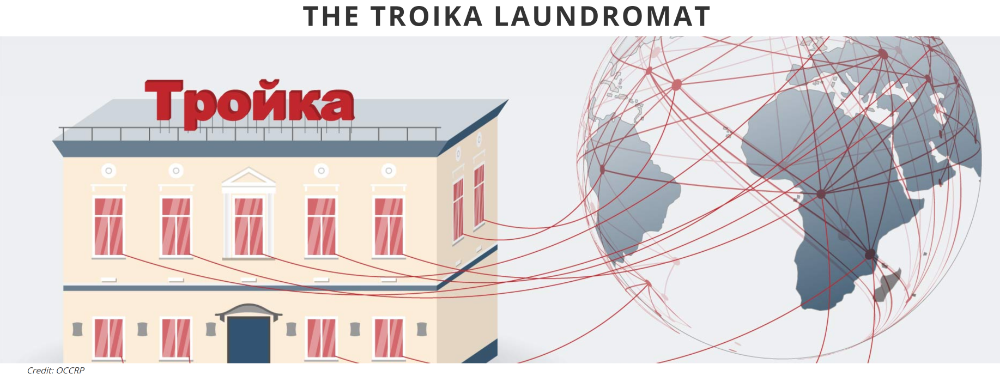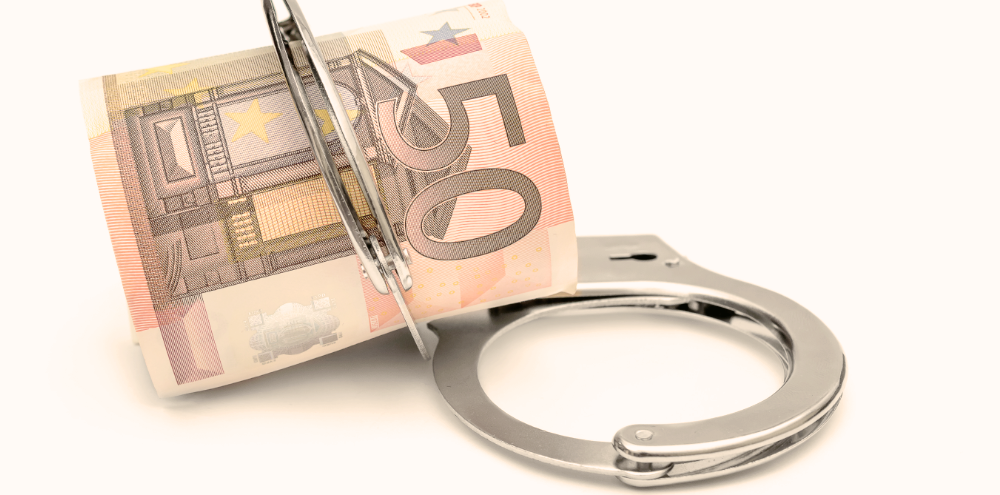
A new set of reports by the Organized Crime and Corruption Reporting Project, compiled from over 1.3 million leaked transactions from 238,000 companies, have linked many major banks to a scheme to channel billions of dollars out of Russia. The Troika Laundromat is unique in that “it was created by a prestigious financial institution.”
Also read: SEC Chair Explains Key Upgrades Needed for Bitcoin ETF Approval
$8.8 Billion Money Laundering Scheme
The Organized Crime and Corruption Reporting Project (OCCRP), a non-profit media organization, published a set of reports this week detailing a complex money laundering scheme “to channel billions of dollars out of Russia” which it and Lithuanian news site 15min.it uncovered.
“The data, which was compiled from multiple sources, represents one of the largest releases of banking information ever, involving some 1.3 million leaked transactions from 238,000 companies,” worth $470 billion, the project website describes.

OCCRP Executive Director Paul Radu elaborated:
Among the counterparties on these transactions were major Western banks such as Citigroup Inc., Raiffeisen, and Deutsche Bank. The dozens of companies in the system also generated $8.8 billion of internal transactions to obscure the origin of the cash.
He noted that Citigroup did not respond to a request for comment, Raiffeisen declined to comment, and Deutsche Bank refused to comment for legal reasons, claiming to have limited access to information on the transactions in question.
The Troika Laundromat
This money laundering scheme is referred to by the OCCRP as the Troika Laundromat. “The Laundromat wasn’t just a money laundering system. It was also a hidden investment vehicle, a slush fund, a tax evasion scheme, and much more,” Radu wrote. “The Troika Laundromat is unique among the Laundromats that have been uncovered in recent years in that it was created by a prestigious financial institution.”

He further explained that this scheme involved Russian private bank Troika Dialog between 2006 and early 2013. The bank was established in the early 1990s and became the country’s largest private investment bank. It was purchased in 2012 by Russia’s largest state-owned lender, Sberbank.
A 2006 interview with Troika co-founder Pavel Teplukhin revealed that the bank had a strong relationship with a local Citibank office where up to 20 percent of its new investors came from. This made the New York-based Citibank Troika’s biggest “external agent,” Radu emphasized, adding:
Other major international banks, including Credit Suisse and Standard Bank Group, did significant business with Troika as well.
Widening Fallout
Following the Troika Laundromat reports, “Finland’s Nordea Bank and Germany’s Deutsche Bank have also been drawn into the widening fallout, as OCCRP partners revealed they received 700 million euros [~$791 million] and $889 million respectively in potentially dirty money,” OCCRP reporter Harry Holmes wrote Wednesday. Another OCCRP reporter, Katarina Sabados, reiterated:
Among the implicated European banks are Danske Bank, Deutsche Bank, Credit Agricole, Swedbank, Raiffeisen Bank International, and Coöperatieve Rabobank.

Meanwhile, prosecutors in the Netherlands said on Wednesday that they are evaluating signs of Dutch involvement, Reuters reported. The news outlet conveyed that “Dutch magazine de Groene Amsterdammer, part of the OCCRP group, alleged that ING, ABN Amro and unlisted Rabobank handled hundreds of millions of euros in improper payments.”
What do you think of the Troika Laundromat? Let us know in the comments section below.
Images courtesy of Shutterstock and the OCCRP.
Need to calculate your bitcoin holdings? Check our tools section.
The post 1.3 Million Leaked Transactions Link Major Banks to $8.8 Billion Money Laundering Scheme appeared first on Bitcoin News.
Powered by WPeMatico
